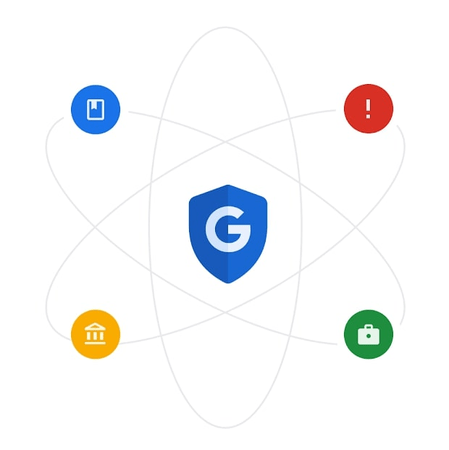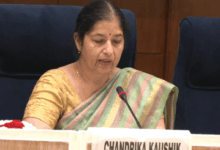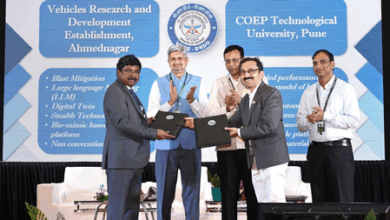
Google on Tuesday announced a major initiative to make India’s digital space safer by unveiling its new ‘Safety Charter’ during the ‘Safer with Google India Summit’.
The initiative is focused on protecting users from online fraud, boosting cybersecurity for critical infrastructure and ensuring that AI is developed responsibly.
This Safety Charter is built around three key goals — keeping internet users safe from scams and frauds, strengthening cybersecurity for governments and businesses and building responsible AI systems that protect people.
Google’s ‘Digikavach’ programme, a key part of the initiative, has already reached over 17.7 crore Indians with AI-powered tools and awareness campaigns against financial scams.
Google’s systems are becoming more powerful with AI — its Search now identifies 20 times more scam websites, and scam attacks on customer service and government platforms have dropped by 80 per cent and 70 per cent, respectively.
On the messaging side, Google Messages is blocking over 500 million scam texts every month.
Google Pay, which is widely used in India, has sent out over 4.1 crore alerts to warn users about possible frauds. It also helped prevent fraud worth Rs 13,000 crore in 2024 alone.
The company’s app safety system, Google Play Protect, has blocked nearly 6 crore risky app installs across 1.3 crore devices since it was piloted in India in October 2024.
Gmail, which is used by billions globally, is automatically stopping more than 99.9 per cent of spam, phishing attempts and malware.
Google is also working to strengthen cybersecurity on a larger scale. It has introduced a new AI-powered approach to detect threats early and share that information with other companies and government bodies.
Its project zero team, working with DeepMind, has used AI to discover dangerous flaws in widely used software like SQLite — before attackers can exploit them.
To further support the ecosystem, Google.org has pledged $20 million to expand the Asia-Pacific Cybersecurity Fund, including $5 million to The Asia Foundation.
This will help set up 10 new cyberclinics in the region and partner with Indian universities to train students and small businesses in digital safety.
Another key partnership was announced with IIT-Madras to advance Post-Quantum Cryptography.
This research will help make India’s digital systems more secure in the future, even against next-generation cyber threats.
Google’s leaders highlighted that safety is a core part of their design and technology. Preeti Lobana, Vice President and Country Manager for Google India, said that building trust in India’s digital infrastructure is crucial to the country’s development goals.
She added that Google’s AI systems are already able to detect never-before-seen scams and attacks, giving users an added layer of protection.
Heather Adkins, Vice President of Engineering for Google Security, pointed out that online threats are now evolving at machine speed. She said AI’s ability to learn, reason, and act at scale is allowing defenders to stay ahead of attackers like never before.











